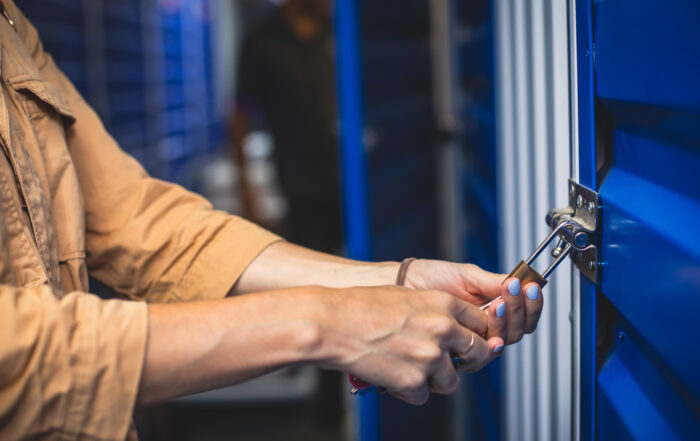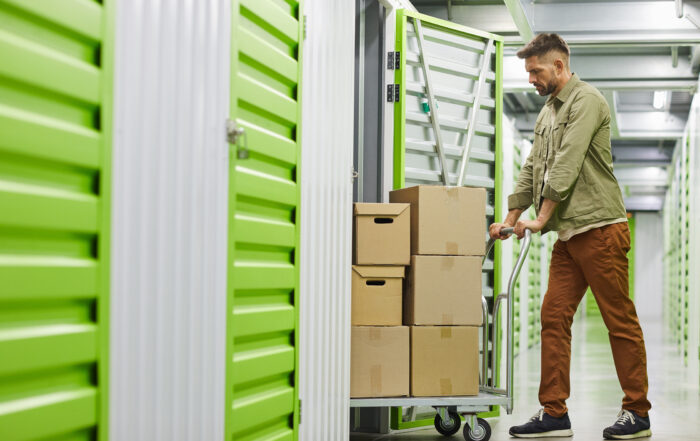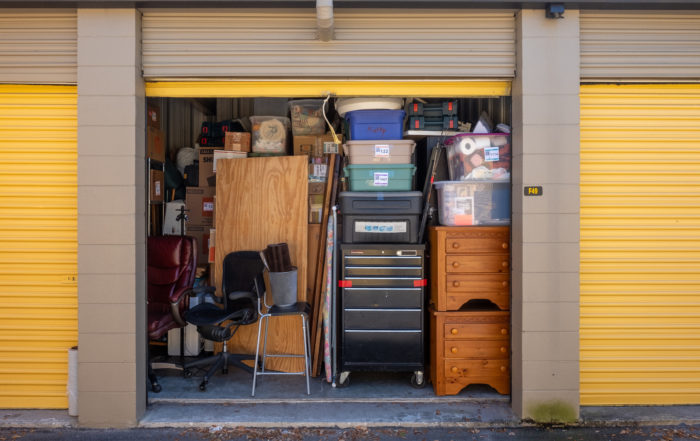Do You Need A Climate Controlled Storage Unit?

There seems to be a lot of confusion about whether climate controlled units are worth it? In some cases, yes! In others, you can go without. Let’s break down when and when you don’t need a climate controlled unit.
What is a Climate Controlled Storage Unit?
Climate control means that the temperature and/or humidity of your storage space is controlled. It will stay at a consistent level no matter the season or time of day. The purpose of such units is to protect items that are more sensitive to the elements.
Before you choose a storage unit, think to yourself if anything you will be storing can melt in higher temperatures, degrade if it gets damp, or get warped by humidity and heat. Some items also crack if they get too cold or dry!
Think things like:
- Musical instruments
- Leather
- Antiques
- DVD/CDS/Vinyls
- Some electronics
- Makeup and toiletries (don’t store these anyway!)
- Medical supplies
- Sporting equipment that can melt or lose its shape
- Clothing that isn’t properly sealed
- Printed items like books, photos, and documents. (keep these at home!)
These units are generally inside, therefore harder to move in and out of due to the lack of vehicle accessibility.
What Levels are They Kept At?
This is something that you will have to ask the storage facility, as there is no universal temperature or humidity level for climate controlled units. There can be a wide range — generally between 55F and 85F — and most are kept around 55% humidity.
To put that into perspective, most homes are between 35% humidity and 40%.
Do I Need Climate Control?
It all depends on what you’re storing. If you’re looking to keep anything on the above list in a unit for a prolonged period of time (this time period is different between items), then yes. But if you aren’t storing anything that is at risk of being damaged by the temperature of humidity, then you can probably skip it all together.
Ask yourself all of the following before you decide:
- Am I storing anything that can discolor, warp, or crack with varying temperatures?
- Am I storing in a place with extreme heat, cold, or humidity?
- Can Any of my items form mold or mildew?
- How long will I be storing the items for?
This is an important decision as climate controlled units do have their drawbacks. They are generally more expensive, and, as mentioned above, are not as accessible.
Climate controlled units are best if you plan on storing the same items for a long time. If you’re storing them for a short period, such as between a move or seasonally, then you can probably get away without using it.
Why Choose Outdoor Storage Units
We don’t mean that your items will be stored outside, unless you rent a space for a vehicle, boat or RV. An outdoor storage unit is simply one that you can drive your vehicle up to. Most of them lack climate control and are accessible through a garage-like door.
They are usually the more affordable option and the more popular. We recommend taking an inventory of everything you’re going to be storing, just like before, to decide if an outdoor unit is right for you. Keep in mind that you should always keep important documents and supplies with you or secure in your home or office at all times.
Things that will be fine without climate control:
- Vehicles
- Boats
- RVs
- Properly sealed clothing
- Properly wrapped couches (that aren’t leather)
- Kitchenware
- Appliances
- Larger furniture that won’t warp due to heat
- Glass and fragile items (that are properly packed away)
What To Think About Without Climate Control
Because these units are typically accessible by car, that means they’re ground-level and don’t have much to separate them from the outside. When you’re searching for storage units like this, look for concrete structures, well lit areas, clean landscaping, and good quality doors.
It might seem silly, but this is to protect your belongings from pests, bugs, dust, and the weather. You don’t want any leaks getting in or any mice making a home in your unit, after all.
While these types of events are rare, they can happen in any storage unit, especially outdoor ones. That’s why you need to do research and choose a reputable storage unit facility.
Recent Posts
Understanding Self-Storage Lease Terms: What to Know Before You Sign
Renting a self-storage unit is often one of those tasks that feels simple at first—pick a unit, sign a lease, move your stuff in. But if you’re like most people, the fine print on that [...]
What Not to Do When Using a Self-Storage Unit: 9 Common Mistakes to Avoid
Self-storage units are a convenient and affordable way to store everything from furniture and keepsakes to business inventory and seasonal gear. Whether you’re moving, downsizing, or just trying to declutter your space, renting a storage [...]
How to Keep a Storage Unit Clean and Tidy
A self-storage unit can be a lifesaver when you need extra space, but without proper organization and upkeep, it can quickly become cluttered. A clean and tidy storage unit not only makes it easier to [...]



